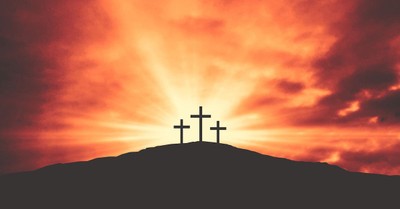Exodus 28:9-29
9 You shall take two onyx stones, and engrave on them the names of the sons of Israel, 10 six of their names on the one stone, and the names of the remaining six on the other stone, in the order of their birth. 11 As a gem-cutter engraves signets, so you shall engrave the two stones with the names of the sons of Israel; you shall mount them in settings of gold filigree. 12 You shall set the two stones on the shoulder-pieces of the ephod, as stones of remembrance for the sons of Israel; and Aaron shall bear their names before the Lord on his two shoulders for remembrance. 13 You shall make settings of gold filigree, 14 and two chains of pure gold, twisted like cords; and you shall attach the corded chains to the settings.
15 You shall make a breastpiece of judgment, in skilled work; you shall make it in the style of the ephod; of gold, of blue and purple and crimson yarns, and of fine twisted linen you shall make it. 16 It shall be square and doubled, a span in length and a span in width. 17 You shall set in it four rows of stones. A row of carnelian, chrysolite, and emerald shall be the first row; 18 and the second row a turquoise, a sapphire and a moonstone; 19 and the third row a jacinth, an agate, and an amethyst; 20 and the fourth row a beryl, an onyx, and a jasper; they shall be set in gold filigree. 21 There shall be twelve stones with names corresponding to the names of the sons of Israel; they shall be like signets, each engraved with its name, for the twelve tribes. 22 You shall make for the breastpiece chains of pure gold, twisted like cords; 23 and you shall make for the breastpiece two rings of gold, and put the two rings on the two edges of the breastpiece. 24 You shall put the two cords of gold in the two rings at the edges of the breastpiece; 25 the two ends of the two cords you shall attach to the two settings, and so attach it in front to the shoulder-pieces of the ephod. 26 You shall make two rings of gold, and put them at the two ends of the breastpiece, on its inside edge next to the ephod. 27 You shall make two rings of gold, and attach them in front to the lower part of the two shoulder-pieces of the ephod, at its joining above the decorated band of the ephod. 28 The breastpiece shall be bound by its rings to the rings of the ephod with a blue cord, so that it may lie on the decorated band of the ephod, and so that the breastpiece shall not come loose from the ephod. 29 So Aaron shall bear the names of the sons of Israel in the breastpiece of judgment on his heart when he goes into the holy place, for a continual remembrance before the Lord.




Matthew Henry's Commentary on Exodus 28:9-29
Commentary on Exodus 28:6-14
(Read Exodus 28:6-14)
This richly-wrought ephod was the outmost garment of the high priest; plain linen ephods were worn by the inferior priests. It was a short coat without sleeves, fastened close to the body with a girdle. The shoulder-pieces were buttoned together with precious stones set in gold, one on each shoulder, on which were engraven the names of the children of Israel. Thus Christ, our High Priest, presents his people before the Lord for a memorial. As Christ's coat had no seam, but was woven from the top throughout, so it was with the ephod. The golden bells on this ephod, by their preciousness and pleasant sound, well represent the good profession that the saints make, and the pomegranates the fruit they bring forth.
Commentary on Exodus 28:15-30
(Read Exodus 28:15-30)
The chief ornament of the high priest, was the breastplate, a rich piece of cloth, curiously worked. The name of each tribe was graven in a precious stone, fixed in the breastplate, to signify how precious, in God's sight, believers are, and how honourable. How small and poor soever the tribe was, it was as a precious stone in the breastplate of the high priest; thus are all the saints dear to Christ, however men esteem them. The high priest had the names of the tribes, both on his shoulders and on his breast, which reminds us of the power and the love with which our Lord Jesus pleads for those that are his. He not only bears them up in his arms with almighty strength, but he carries them in his bosom with tender affection. What comfort is this to us in all our addresses to God! The Urim and Thummim, by which the will of God was made known in doubtful cases, were put in this breastplate. Urim and Thummim signify light and integrity. There are many conjectures what these were; the most probable opinion seems to be, that they were the twelve precious stones in the high priest's breastplate. Now, Christ is our Oracle. By him God, in these last days, makes known himself and his mind to us, Hebrews 1:1,2; John 1:18. He is the true Light, the faithful Witness, the Truth itself, and from him we receive the Spirit of Truth, who leads into all truth.